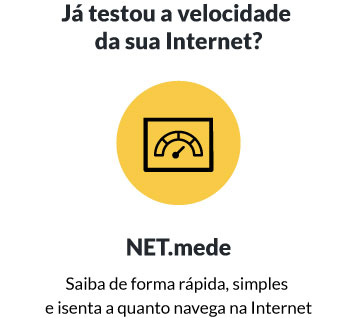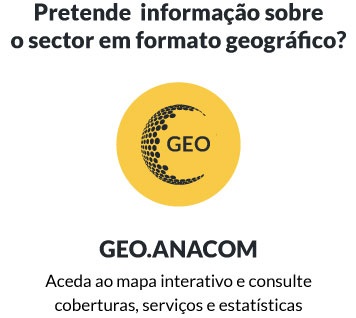Já se encontra disponível a intervenção (em Inglês) do Administrador da ANACOM José Ferrari Careto, feita por videoconferência, a partir de Lisboa, na reunião do Grupo de Preparação de Conferências (CPG) da CEPT que decorreu nos Açores, de 24 a 26 de Fevereiro de 2010.
Discurso
Good morning, ladies and gentlemen.
1. First of all I am delighted to welcome you all, to the island of Azores. It’s a pleasure to know that about 120 delegates of 30 European countries will be together at this location during the next 3 days to discuss the topics of the forthcoming WRC. ANACOM is proud to host this event taking the importance we are giving to this Conference Preparatory Group, as this is the cornerstone of CEPT preparation process to the WRC.
I would rather prefer to be present with you and to know from you what are the main challenges Europe will face during the WRC. However, as I will participate in a round-table this afternoon in the FTTH Conference in Lisbon, I am obliged to be “present” in this opening session as a consumer of the electronic communications services, taking advantage of a video conference service that allows us to bridge, at light speed, a distance of 1.500 Km.
2. To whom is not familiar with ANACOM (Autoridade Nacional de Comunicações), I would like to mention that its main roles are:
- Regulating the postal and electronic communications sectors (which we do since 1989) and,
- Managing the radio spectrum.
In particular with regard to Spectrum Management, ANACOM is responsible for managing the use of frequencies in accordance with the following three criteria:
- making radio spectrum available;
- ensuring effective competition in the relevant markets;
- ensuring effective and efficient use of frequencies.
Having referred to these criteria, ANACOM has a far reaching objective of facilitating access to spectrum, improving efficiency, promoting innovation, and allowing greater flexibility while maintaining harmonisation.
3. In this context I would like to give you a brief highlight of the recent main activities of ANACOM in this area of spectrum management:
- ANACOM had given an early signal to the market on the flexible use of the spectrum in the 900/1800 MHz, the so-called GSM spectrum refarming, process that we expect to conclude in the first half of 2010. This step, will contribute to expected advantages with regard to spectrum efficiency and wider coverage implementation, ultimately benefiting consumers particularly in broadband access.
- ANACOM has also recently launched an auction for the allocation of rights of use of frequencies for BWA in 3,4 - 3,8 GHz. Currently 36 rights, distributed across 9 geographic areas of use of frequencies in this band are under evaluation, and this process should be concluded during the next month. This will allow BWA applications based on technological and service neutrality principles, fostering competition in the wireless broadband market.
- Also, in the field of Mobile Communications a broad discussion took place concerning the framework for the 2.6 GHz band as we launched a public consultation on that issue. Following it, ANACOM envisages an auction to be performed last quarter 2010 to assign spectrum in the 2,6 GHz in conjunction with the available spectrum in the 1800 MHz and 2100 MHz bands, on a basis of technological and services neutrality, allowing more freedom to market players to choose the set of frequencies they consider is more appropriate for their operations.
- Analogue television broadcasting transmissions have been scheduled to cease by April 2012, in particular in the UHF range and ANACOM has launched last year a Public Consultation on this subject. General market reactions show that the digital dividend may contribute to national cohesion, bridging the “digital divide”, and to create wealth, enhancing the provision of new services and innovative solutions at better prices, contributing to the development of the information society. Following this consultation procedure and taking into consideration the next developments at Community level, ANACOM will take a formal position on this matter, being expected that this position tends towards the provision of this sub-band to broadband electronic communications services, according to WAPECS principles.
- Finally, I should mention the discussion on secondary spectrum trading, with the aim of moving forward in finding ways which provide for flexible and efficient management and use of the radio spectrum.
4. Spectrum based services and mobile communications have been and continue to be the main examples of the world-wide leadership of Europe. The universal dissemination of the GSM and mobile broadband are good cases of the capacity of innovation of Europe in the global market. Portugal is also a good example of this as at the end of 2009, penetration of mobile service was 150 per 100 inhabitants and at the same time, there were 20 mobile broadband active users per 100 inhabitants.
Looking to these figures, it is visible that the wireless services play a very important role in the electronic communications services nowadays and therefore we all acknowledge the very relevant value of the spectrum resource as one of the most important enablers of the modern communications and one of the main pillars of the Lisbon objectives for jobs and growth. For that reason, Europe needs to create a European information space by consolidating the internal market, attracting investment in equipments and services and ensuring that its citizens can benefit from low prices, high quality of service and large freedom of choice.
5. I’m aware that this group is key in the preparation process within the CEPT to prepare European positions for the next WRC. In this respect I understand that CEPT preparation is a good example of cooperation and coordination involving spectrum managers and all other stakeholders. This is even been taken as a “model” for other regional organisations in WRC preparations which clearly signals the CEPT success throughout the different WRCs.
Portugal, through ANACOM, is fully engaged in this preparation process as there are several Agenda Item of WRC-12 which directly impacts on our policies in particular those related to the spectrum management field. To name a few Agenda items of outstanding importance in our view are the AI 1.17, on sharing between mobile service and other services in the 790-862 MHz band, or 1.19, on the introduction of software-defined radio and cognitive radio systems – looking some years ahead from now, or even 1.3, on unmanned aircraft systems.
One particular Agenda Item, AI 1.2, deals with the laborious theme of enhancing the international regulatory framework. This takes the convergence of the radio services with the development of next-generation networks for new radio applications using new radio technologies. This Agenda Item, as we see it, impacts as well the current framework that encompasses flexibility in spectrum use (e.g service neutrality).
5. It is up to you, Mr. Chairman, to proceed and lead now a fruitful debate on all WRC-12 agenda items during the 5th Conference Preparatory Group meeting, taking profit of the broad participation of CEPT Administrations and the Observers present at this meeting.
I wish you all a very successful meeting and a pleasant stay in the Island of São Miguel, preparing a solid position for Europe in the coming WRC.
Thank you for your attention.




